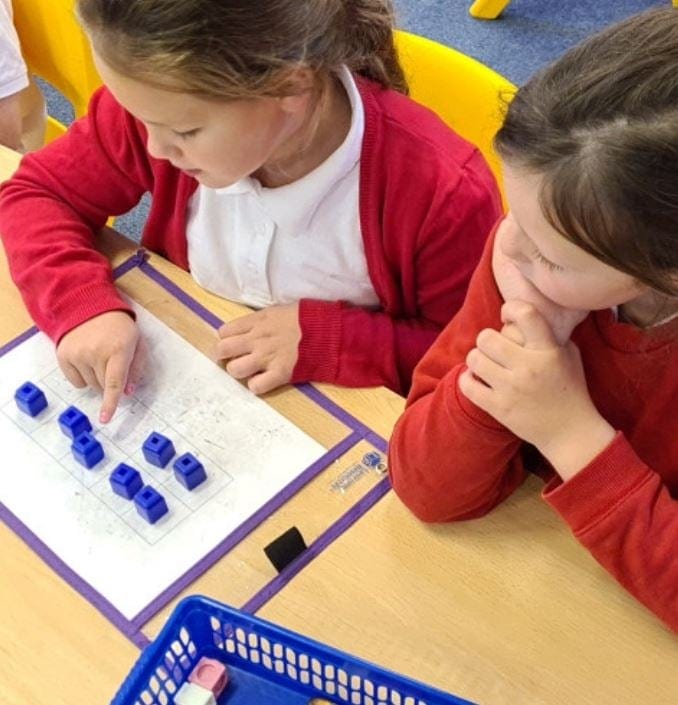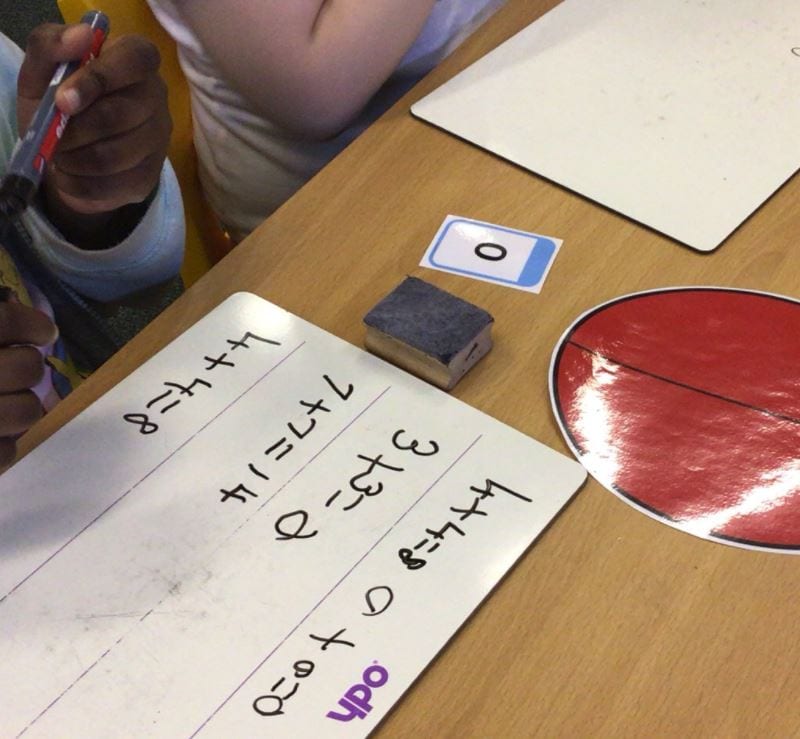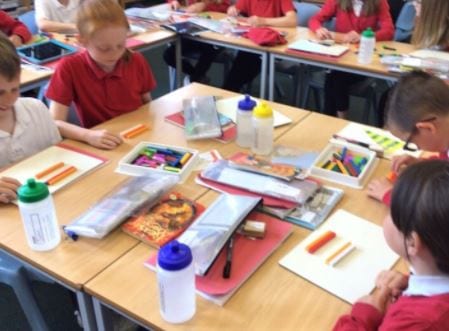Subject Leader – Miss Fenn

Introduction
At Willington Primary, we passionately believe in following a Maths Mastery Curriculum. This allows our children to achieve a sustained, deep, conceptual understanding of mathematics, which means they will succeed in achieving or exceeding national expectations for the end of each key stage. We aim, through high quality creative and inclusive lessons, to create a sense of excitement and curiosity around mathematics. Children are encouraged to make links between what they are learning and the world around them.
They:
- Become FLUENT in their mental and written calculation skills.
- REASON and EXPLAIN mathematically the maths that they are learning.
- Can SOLVE PROBLEMS using and applying their mathematical knowledge in a range of contexts.
Our teaching for mastery is underpinned by the National Centre for Excellence in Teaching Math’s (NCETM’s) 5 Big Ideas:
Coherence
Our maths lessons are broken down into small connected steps that gradually unfold the concept, providing access for all children. This leads to an understanding which gives them the ability to apply the concept to a range of contexts.
Representation and Structure
Throughout the school, from nursery to Year 6, children use concrete representations of number such as Numicon, Rekenreks, place value counters and Dienes blocks; these are also presented visually. This is both to aid their calculations and to deepen their understanding of the abstract concept of number. Eventually, within any given topic, the children will be able to work with just the abstract representation.
Mathematical Thinking
If taught ideas are to be understood deeply, they must not merely be passively received but must be worked on by the child: thought about, reasoned with and discussed with others. At Willington Primary, children work in pairs or groups in every lesson.
Fluency
Alongside reasoning, it is vital that children have quick and efficient recall of facts and procedures, such as times tables, and the flexibility to move between different contexts and representations of mathematics.
Variation
Variation at Willington Primary is twofold. It is firstly about how our teachers represent the concept being taught, often in more than one way, to develop deep and holistic understanding. It is also about the sequencing of activities and exercises used within and between lessons, paying attention to what is kept the same and what changes, to connect the mathematics and draw attention to mathematical relationships and structure.
It is the importance and interconnectedness of these ideas that leads to successful mathematicians.
Intent
At Willington Primary we believe children learn best by having opportunities to revisit previous learning. Daily maths learning time includes the development of quick recall of number facts, an in-depth focused mastery lesson developing knowledge of concepts and procedures. Children complete ‘Arithmetic Practice’ session where children independently practise previously taught skills and knowledge to further develop fluency and efficiency.
At Willington Primary, the teaching of mathematics is underpinned by the following aims:
- To develop conceptual understanding by using models, pictorials and concrete resources so that children understand the mathematics that they are learning and are not just taught ‘tricks’.
- To highlight and utilize relationships between concepts and procedures.
- To encourage mathematical reasoning by following lines of enquiry, generalising and justifying using mathematical language.
- To apply mathematical understanding to problem solving by breaking down problems into simpler steps and persevering in seeking solutions using a range of strategies.
- To develop resilient children who are confident and enthused about mathematics
- To provide ‘purposeful maths’ through application of mathematical skills and knowledge to the world around them.
Times Tables

When it comes to times tables, speed AND accuracy are important – the more facts your child remembers, the easier it is for them to do harder calculations. At Willington Primary, we use Times Table Rock Stars- a fun and challenging programme designed to help pupils master the times tables. To be a Times Table Rock Star you need to answer any multiplication fact up to 12×12 in less than 3 seconds!
Maths Expectations
- National Curriculum Year 1 Maths Expectations
- National Curriculum Year 2 Maths Expectations
- National Curriculum Year 3 Maths Expectations
- National Curriculum Year 4 Maths Expectations
- National Curriculum Year 5 Maths Expectations
- National Curriculum Year 6 Maths Expectations











